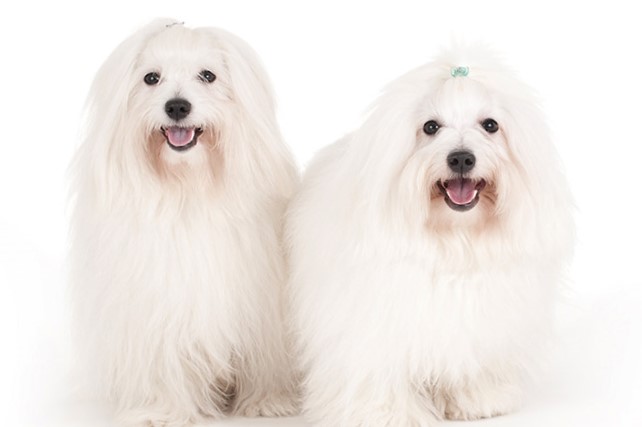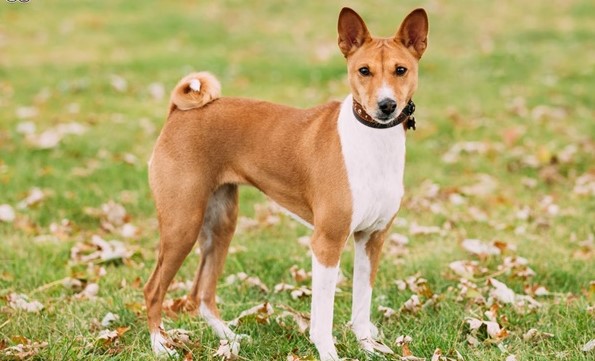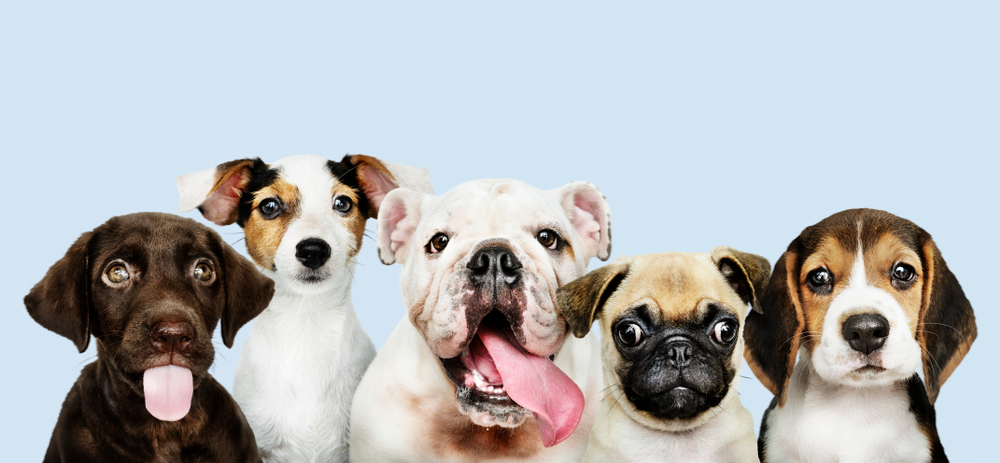Little dogs are extremely popular not only among celebrities, but also in our apartments and homes. Check out the most popular small dog breeds!
Little dogs are popular for several reasons. Firstly, due to their “mobility” – due to their small size (between 7-14 inches), they can follow the guardian to many places. In addition, they will fit well in even not exceptionally large apartments and live longer than their bigger brothers. Most of all, however, these little ones are adorable!
However, whether you choose a large dog or a small one, you must not forget that, first and foremost, he is a dog. Even if the appearance is closer to a plush mascot than a “dangerous” Rottweiler! Owning each animal comes with some challenges and responsibilities. Do not be fooled by the dog’s small size, as such a toddler compensates for his size with the strength of character. Little dogs – just like the larger ones – need a lot of exercise, activity and learning the basic principles of social life.
Some little dogs exhibit so-called little dog syndrome. It occurs when the guardian allows the animal to take control of the environment or treats his pet like a child and does not set any rules for him. Reason? After all, this dog looks so cute … Sometimes the toddler’s guardian also thinks that such a mini-animal – unlike his larger friend – cannot hurt anyone and is generally a “self-educating” dog. The quad may then begin to exhibit behaviors such as growling (when you touch his food or toys), biting, and excessive barking.

Beagle – It has been used for hunting for centuries, and only recently has become a domestic favorite. Unlike many other hounds, the beagle is attached to its owner. When choosing him as a family companion, you must remember that his behavior in some situations will be dictated by the hunting instinct. Their keen sense of smell can sometimes make walks interesting, as they try to follow every smell they encounter. Beagle has a cheerful disposition, cheeky nature, is full of energy, initiative, and at the same time is a brave and balanced doggie. He is friendly and gentle not only towards family members, but also towards strangers, so he will not make good guardian or protector.
The beagle, devoid of aggression, is a great companion for older children. He loves caresses, he is always eager to play, tireless and prank. However, even the mildest Beagle when caught while resting or handled roughly can snarl or snap. Therefore, play with children should be supervised and the beagle should be able to walk away and take some rest when it feels overwhelmed. Weight: 20 – 24 pounds.

French bulldog – The French Bulldog is cheerful, inquisitive and outgoing. He is strongly attached to the owner and shows his devotion to him at every step. It requires interest and close contact with the family; therefore, it is not suitable for living in isolation. If ignored, he can draw attention loudly and loudly. The bulldog is a great companion for children. Gentle and tolerant, he willingly takes part in all games. He is also one of the few dogs that are willing to obey even children and follow their orders. He is friendly towards people and makes contacts with them easily. Even if he is distrustful of strangers at first, he can be persuaded quite quickly. Hearing and alert, he will pay attention to any noise outside the door. The French Bulldog is brave and pugnacious. Males often provoke fights with other dogs, especially larger dogs. The bulldog easily acclimates to various conditions and is not difficult to maintain. It does not need a lot of space. Is perfect even for a small apartment. The French Bulldog is quite active and energetic but will also adapt to a quieter lifestyle. Weight: 20 – 28 pounds.

Pug – The Pug is commonly described as “a lot of dog in a small space”. The Pug’s reason for living is to be near their people and to please them. The pug gives special favors to a selected person in the family and accompanies him at every step. However, this does not prevent him from being cordial also towards other household members. He does not like loneliness and lack of interest – he can prove that he is not getting enough attention. The gentle and patient pug will be a great friend even for young children. However, they must learn to handle it properly. A quadruped of this breed is not a troublesome household member. The pug does not damage equipment, and is usually asleep when the owner is away, although some pugs may show separation anxiety. While this breed is not the athlete type, it is also not lazy. The pug is happy to go out for walks but may not be forced to go too far. A reasonable dose of exercise is particularly important – it keeps you in good shape and prevents obesity. Many pugs like water and swim well. However, they tend to snore and wheeze, which is especially troublesome for owners who decide to bring pets to the bedroom. Weight: 14 – 18 pounds.

Lhasa Apso – although small, they are self-confident, balanced and uncontrolled. They learn cleanliness quickly. Properly brought up, they tolerate loneliness well when the owners leave for work. They know their strengths, they are not cowardly, but also not aggressive, they do not attack people stronger than themselves. They are individualists and they can be stubborn. They become deeply attached to their owners, will not impose with their affection. Nevertheless, clearly needs acceptance and showing him warm feelings, it is easy to observe that the smile and the satisfaction of the owner mean a lot to the Lhasa Apso. They are also extremely vigilant and distrustful of strangers. Alert and watchful, these dogs are suspicious of strangers and will bark in alarm. Most Lhasa Aps are rather poor eaters Weight: 11 – 18 pounds.

Shih tzu – The Shih tzu has a moderate temper, it is balanced and refined. His cheerful disposition will put everyone in a good mood. He likes to sleep, so when he is home alone, he will not be bored and destroy things. This does not mean, however, that it can be condemned to loneliness – like every dog, a shih tzu needs close contact with its owner. Although a shih tzu is devoted and faithful, it does not completely submit to the will of a human being. It is a bit like a cat walking its own way. He likes to sit on owner’s lap, likes to be petted and cuddled, but he is the wone who decides when it is time to cuddle. Do not let be fooled by his small stature and let him win in everything – otherwise shih tzu will quickly realizes that he easily wraps us around his finger. He requires minimal exercise, and his long, luxurious coat can be kept in a “puppy cut” to keep maintenance easier. Weight: 8 – 16 pounds.

Pembroke Welsh Corgi – favorites’ dogs of Queen Elizabeth II. Those small, long dogs, with short legs. The Pembroke Welsh corgi is lively, cheerful and friendly. His strong herd instincts make him stay close to his family, which is why he is usually not prone to wandering around. He is very faithful and becomes attached to all household members. Due to his patience, a representative of this breed is a perfect friend of children of all ages. He is gentle towards infants, little ones are great companions for crazy frolics, while older kids are partners for more organized games or joint sports. Open and friendly towards people. He is not aggressive or distrustful of strangers. To the sound of a bell or knock on the door, he usually responds with barking, only to greet everyone profusely after a while. The representative of this breed does not like inaction. Movement is especially important in his case, because it prevents boredom, allows you to maintain good condition and a slim figure. However, a few walks a day are enough, including one longer (e.g. one hour) combined with fun and exercise. Corgi does not need much space and feels good in the apartment if we provide it with regular outdoor activity. Weight: 22 – 31 pounds.

Bichon frise – A small companion dog, cheerful, balanced, with a moderate temperament. His beautiful, long, curly white hair like cotton candy requires careful care. He granted his friendship to crowned heads, aristocrats and ordinary people for centuries, because being a companion has been his long life calling. However, he can not only sit on the couch, but he will also gladly go for a walk, play with a ball or teach tricks. Bichon is an extremely sensitive dog. He always wants to be close to people, loves to cuddle (when he is alone at home, he will lay on the clothes left by the owners, just to be close to the smell of his beloved people). It requires a gentle approach, but it does not mean you can let it do anything. It has been bred as a companion dog for thousands of years and this is its primary function. He is intelligent and willing to learn, but he is also stubborn and can consistently try hard to get his way. Weight: 6.6 – 18 pounds.

Boston terrier – called an American gentleman – it is a dog with an elegant appearance, friendly, cheerful, gifted with a nice disposition. He is extremely attached to the owner, also requires a lot of attention and interest, although he is not pushy when asking for it. Usually he endures three or four hours of solitude calmly, but the persistent absence of family members has a bad effect on his psyche. When feeling lonely and abandoned, he will sometimes destroy objects in the house. This breed is gentle and gets along well with children of all ages, but do not tease him. elemental. It will also accept other pets: cats, ferrets and guinea pigs. The Boston Terrier amazes with its sports condition. He has a great temperament, he is lively, physically fit and energetic. Discharging his bursting energy requires a lot of exercise and mental exercise. He eagerly retrieves, jumps and easily keeps pace with the owner on a long trip. A dog of this breed does not need a lot of space, so it is suitable even for a small apartment. Its small stature and the ease with which it adapts to all conditions make Boston a great travel companion. It is an inquisitive and very alert dog, but fortunately not very noisy. Weight: 10 – 25 pounds.

Coton de Tulear – breed of small dog named for the city of Tuléar (or Toliara in Madagascar). Known for its cotton-like coat typically comes in white, sometimes with gray, black, or tricolored markings. Coton de Tulear has a good temperament, a cheerful disposition, is energetic and full of joy to live into old age. He is extremely attached to the family and does not favor anyone. He does not like solitude and requires a lot of attention, so people who spend most of their time outside the home should not choose him as a pet, because he will not be happy. Neglected and left alone, the pooch may suffer from separation anxiety, which manifests itself in breaking things, persistent barking or howling. Coton is friendly, communicates easily with the environment and is happy to accompany the owner everywhere. The dog of this breed is alert and always signals when something suspicious is happening. However, he can be over-zealous and therefore excessively noisy. A perfect friend for older children – patient, gentle and at the same time tireless in play. However, it may not work well as a companion for toddlers. He feels good in the company of his own kind, he also gets along with new four-legged friends. He generally accepts small pets, but you must remember that he still has a hunting instinct, and it should be supervised. Its small size makes the Coton a perfect living dog. However, let us not forget that there is a real athlete under the effective robe. This pet does not like laziness – it is energetic, active, requires a lot of exercise. Weight: 10 – 18 pounds.

Havanese – National dog of Cuba (therefore the name), make loyal family companions. Small and sturdy in structure with a tail carried over its back and ears that drop and fold. The lavish coat, long, and silky, comes in all colors. The Havanese has a feisty personality and a curious disposition, and is notable for its springy posture, so characteristic to this breed. The Havanese is considered an ideal family pet and a true companion dog. They are highly adjustable to almost any environment. Because of their strong social needs, is not suited to be left alone for many hours a day, and it will not thrive in an environment where they are isolated. The dog becomes overly attached and are very loyal to their owners, often attaching to one person especially whom they will closely follow. Havanese is an active dog, and thanks to its size, much of its exercise needs can be met in a house or yard, and it therefore does not require as much vigorous exercise as other breeds. However, movement is still necessary for this breed to be happy and healthy. Though it enjoys outdoor activity, it prefers being inside with its owner. They are good with children. They love to perform in front of others and have a great need for affection. Weight: 9 – 16 pounds.

Dachshund (Hot dog) – Dachshund is a great individualist, gifted with extraordinary courage. Despite his small height, he is not a couch potato, in fact quite the opposite energetic and hardy, he likes long walks. Movement is particularly important to him because it prevents obesity. However, his hunting instinct may make him run after a cat or birds, so in the city it is better to lead him on a lead. He is a curious and cheerful dog. Extremely attached to the owner, he can be jealous of his favor. Dachshunds do not take loneliness well. Likes to be the center of attention and actively participate in family life. He is a good friend with children. Generally, very affectionate towards people, he may be distrustful at times, but should not be aggressive. Known for their long and low bodies, (that gives the Hot Dog nickname) they are one of the most popular breeds. Dachshunds come in three different coat varieties (Smooth, Wirehaired or Longhaired) and can be miniature or standard size, so there is something for everyone. Weight: 16 – 33 pounds.

Basenji – The Basenji is a descendant of ancient Egyptian dogs, a small, lightweight, physically fit dog with overhanging ears and a tail curled around its back. It is not very willing to submit to man. Yodeling is his characteristic voice. He does not like loneliness and confinement to small rooms. He likes to be in the spotlight, requires constant attention and devoting a lot of time to him. Basenjis originally worked as hunting dogs in Africa, prized for their intelligence and independence. Most remarkably, however, the “barkless dog” makes an odd chortle-like sound instead of traditional barking. The Basenji is a dog of great temperament, cheerful, lively and inquisitive. He is extremely sensitive and strongly attached to the owner. He does not like loneliness and confinement in small rooms. He will suffer from severe separation anxiety. A Basenji left alone for hours without company and bored, often becomes destructive. He is very alert and distrustful towards strangers, but if he decides that he is in no danger, he makes friends quite quickly. Weight: 22 – 26 pounds



